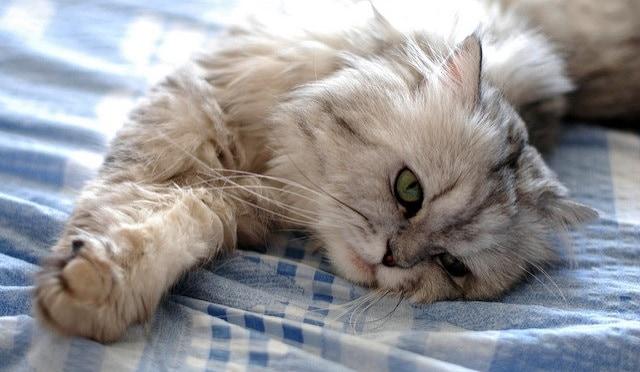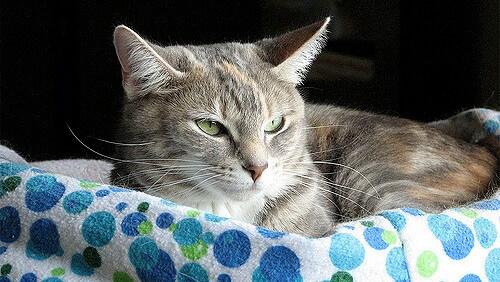
-
Find the right food for your petTake this quiz to see which food may be the best for your furry friend.Find the right food for your petTake this quiz to see which food may be the best for your furry friend.Featured products
 Mature Adult Dog Food
Mature Adult Dog FoodHill's Science Plan Mature Adult Multipack Wet Dog Food with Chicken & Beef are complete premium pet foods for mature adult dogs from 7 years. Your dog will love these deliciously smooth and savoury minced loaves, formulated to deliver the appropriate amount of energy to support the needs of adult dogs.
Shop Now Puppy Food
Puppy FoodHill's Science Plan Puppy Multipack Wet Dog Food with Chicken & Beef are complete premium pet foods for growing puppies from weaning until 1 year old and for pregnant and nursing dogs. Your puppy will love these deliciously smooth and savoury minced loaves, formulated for balanced nutrition and overall health.
Shop Now Adult Wet Dog Food with Beef
Adult Wet Dog Food with BeefHill's Science Plan Adult Multipack Wet Dog Food with Chicken, Beef & Turkey are complete premium pet foods for adult dogs from 1 year. Your dog will love these deliciously smooth and savoury minced loaves, formulated for balanced nutrition and overall health.
Shop NowFeatured products Light Adult Multipack Wet Cat Food with Chicken & Ocean Fish
Light Adult Multipack Wet Cat Food with Chicken & Ocean FishTender chicken chunks in gravy for cats, with L-carnitine and fewer calories for ideal weight management. Packed with high-quality protein, omega-6s, and vitamin E for shiny fur and healthy skin.
Shop Now Mature Adult Wet Cat Food with Chicken
Mature Adult Wet Cat Food with Chicken
Tender chicken chunks in gravy for mature adult cats. Made with easy-to-digest ingredients, high-quality protein for lean muscle maintenance and antioxidant vitamins C+E for optimal health.
Shop Now Adult Multipack Wet Cat Food with Beef, Ocean Fish & Chicken
Adult Multipack Wet Cat Food with Beef, Ocean Fish & ChickenTender chunks in gravy for cats, with high-quality protein to maintain lean muscle. With vitamin E and omega-3s & -6s for healthy skin and balanced minerals to support healthy vital organs.
Shop Now -
Dog
- Dog Tips & Articles
-
Health Category
- Weight
- Food & Environmental Sensitivities
- Urinary
- Digestive
- Joint
- Kidney
-
Life Stage
- Puppy Nutrition
- Adult Nutrition
- Senior Nutrition
Cat- Cat Tips & Articles
-
Health Category
- Weight
- Skin & Food Sensitivities
- Urinary
- Digestive
- Kidney
-
Life Stage
- Kitten Nutrition
- Adult Nutrition
Featured articles The Right Diet For Your Pet
The Right Diet For Your PetIn people, the right diet is very important. If you are eating the wrong way for your metabolism, activity level, age and lifestyle you could end up with health issues.
Read More The Incredible Science Behind Your Pet's Microbiome
The Incredible Science Behind Your Pet's MicrobiomeLearn what your pet's microbiome is, how it contributes to your pet's gut and overall health, and why nutrition is important in maintaining healthy microbiomes.
Read More Show some love with wet foods: a great choice for pets with health issues
Show some love with wet foods: a great choice for pets with health issuesShow some love with wet foods: a great choice for pets with health issues.
Read More -


When your kitty is under the weather, she can't exactly ask for a pain reliever or an ice pack to help her feel better, so you may find yourself asking, "does my cat have a fever? And, how can I tell if she does?" Learn how to identify the symptoms, causes and treatment related to your cat's fever.
Symptoms
There are tell-tale signs when humans have a fever, and these same symptoms also are visible in kitties, such as lack of appetite, weakness or lethargy, shivering, dehydration or ears that are warm to the touch. In addition to a rapid heart rate and/or increased respiratory rate, cats may exhibit other symptoms specific to the illness that may be causing the high fever, depending on what ailment is troubling your feline friend.
The most conclusive way to determine if your cat has a fever is to take her temperature. A cat's normal body temperature is between 99.5 and 102.5 degrees Fahrenheit. A temperature above this range may indicate a fever.
Ear thermometers may be easier and more convenient for pet parents, but as Petcha explains, "The best and most economical way for you to take your cat's temperature is by using a pediatric rectal glass or digital thermometer. Taking your cat's temperature usually takes two people: one to restrain the cat and the other to insert the thermometer." Be sure to lubricate the thermometer with petroleum jelly and leave in for at least two minutes to get the most accurate result. Be sure to not stick a rectal thermometer in too far as the rectal tissue is sensitive and can cause damage to your cat. Also, never use a mercury thermometer on your cat because if the thermometer breaks it can be very harmful for your cat's health and life.
Although not the most appealing or comfortable method, taking the rectal temperature is the best way to answer the question of whether or not your cat has a fever. If you are uncomfortable taking your cat's temperature, contact your veterinarian right away so you can take her in for an appointment and have her temperature taken by a professional. It is also important to bring in your cat's vaccination record to help your veterinarian get the best record of any other illness that your cat may not have been vaccinated against to help narrow down what is causing your cat's fever.


Tasty Tips
Causes
Once you determine your cat has a fever (or, pyrexia, as it's known in medical terms), your vet will determine whether further testing is required to determine the cause. Knowing the cat's health history will be of great help. If you have to bring your cat to an after-hours veterinary office instead of her regular doctor, be sure to bring documentation of her history, especially a list of medications, as sometimes cats can have a bad reaction to certain drugs.
Similar to fevers in humans, there is a wide range of possible causes for fever in cats, the most common of which is a bacterial infection. Other possibilities include immune system or inflammatory issues, exposure to toxins, a disorder or a disease. It's also possible that fever in cats is caused by an unknown problem, at which point you and your vet can discuss the next steps.
Treatment
Along with rest and hydration, fevers in cats typically are treated with antibiotics. As with taking your cat's temperature, getting your cat to take medication may not be easy, but it's important. If she spits out her pill or won't eat the cat food in which you've hidden it, VCA Hospitals provides great tips for giving pills to a feisty cat. One method includes wrapping her in a towel for comfort and security. It's a good idea to employ a helper to assist with this challenging job.
In some instances, your vet can provide you with a liquid medication, which is easier to administer.
It's not easy to watch your fur baby suffer from a fever, but in addition to following your vet's instructions for medical care, there are things you can do to catch an illness before it progresses. Performing regular cat maintenance (brushing her teeth, clipping her claws) and check-ups (look at her ears, monitor her eating and drinking habits) provides you with a great baseline for your kitty's health.
And don't forget to smother her with snuggles and cuddles. A little love goes a long way to help your kitty get well soon!


Christine O'Brien is a writer, mom, and long-time cat parent whose two Russian Blues rule the house. Her work also appears in Care.com, What to Expect, and Fit Pregnancy, where she writes about pets, pregnancy, and family life. Find and follow her on Instagram and Twitter @brovelliobrien.
Related products

Tender chicken chunks in gravy for cats, with L-carnitine and fewer calories for ideal weight management. Packed with high-quality protein, omega-6s, and vitamin E for shiny fur and healthy skin.

Tender chunks in gravy for cats, with high-quality protein to maintain lean muscle. With vitamin E and omega-3s & -6s for healthy skin and balanced minerals to support healthy vital organs.

Tender chicken chunks in gravy for mature adult cats. Made with easy-to-digest ingredients, high-quality protein for lean muscle maintenance and antioxidant vitamins C+E for optimal health.
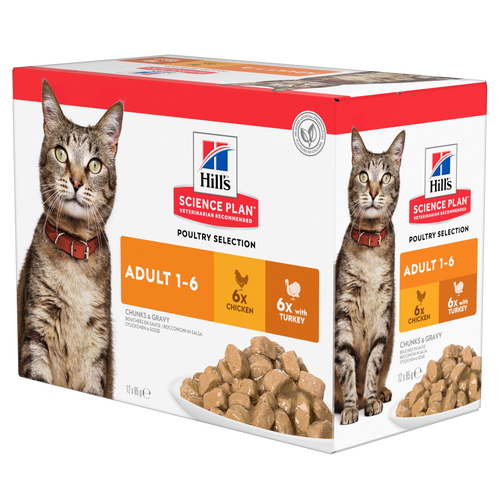
Related articles
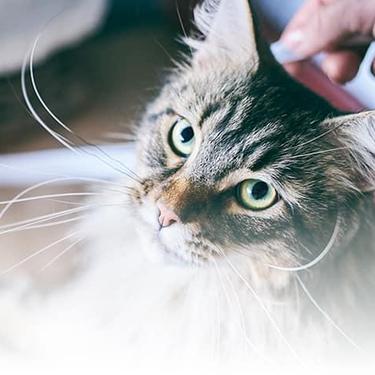
Learn how to make homemade cat treats that are healthy for your pet with this recipe from Hills Pet Nutrition.
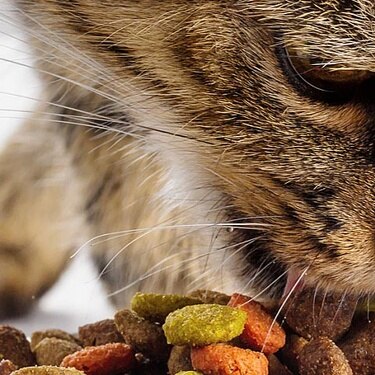
From essential vitamins & minerals to different types of meat, learn what to look for when choosing the best cat food for your feline.
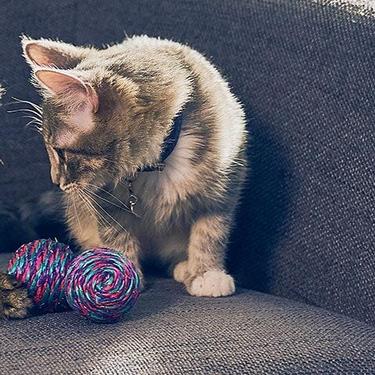
Kittens grow a lot in their first year, so it is important to provide them with the proper nutrients early, so they grow up healthy and strong. Learn more.

There are three common ways to feed a cat. Each way has its advantages and disadvantages.

Put your cat on a diet without them knowing
Our low calorie formula helps you control your cat's weight. It's packed with high-quality protein for building lean muscles, and made with purposeful ingredients for a flavourful, nutritious meal. Clinically proven antioxidants, Vitamin C+E, help promote a healthy immune system.
Put your cat on a diet without them knowing
Our low calorie formula helps you control your cat's weight. It's packed with high-quality protein for building lean muscles, and made with purposeful ingredients for a flavourful, nutritious meal. Clinically proven antioxidants, Vitamin C+E, help promote a healthy immune system.


